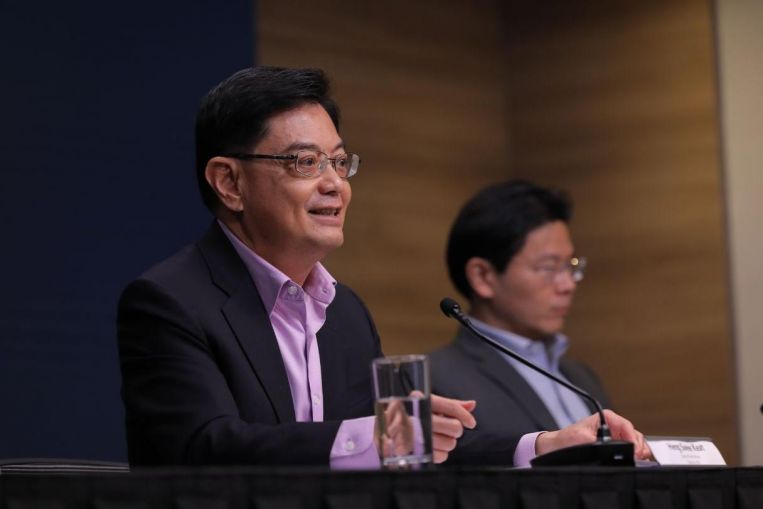SINGAPORE – Artificial intelligence (AI), 5G and cyber security will be the key drivers in growing Singapore’s digital economy in a post-Covid-19 world.
Outlining the country’s research plans through 2025, the National Research Foundation (NRF) said on Friday (Dec 11) that new opportunities exist at the intersection of AI, 5G and cyber security, and in digital tools that engender trust in areas such as food, medicine and vaccine provenance.
At a virtual press conference announcing Singapore’s 7th Research, Innovation and Enterprise (RIE) plan, Deputy Prime Minister Heng Swee Keat noted that the Covid-19 pandemic has increased the impetus to innovate and digitalise.
“We must continue to maximise the value created by digital innovation, and better integrate technology and governance,” added Mr Heng, who is also Finance Minister and chairs the NRF.
One key area, as outlined in the RIE2025, is AI-enabled cyber-security tools, as they are more capable than human beings in sniffing out security threats in critical infrastructure.
AI-enabled cyber security is key if 5G networks are to form the backbone of Singapore’s digital economy, with the network potentially supporting mission-critical applications, such as driverless car navigation and remote surgery.
“The new value is in the interstitials and the points of intersection,” said Minister-in-charge of Cybersecurity S. Iswaran, who is also Minister for Communications and Information.
“All of these (technologies) will undergird the next bound of economic growth… These technologies can catalyse paradigm-shifting applications,” said Mr Iswaran at the virtual press conference.
For example, AI and 5G can transform manufacturing, healthcare and transportation through smart factories, telemedicine and autonomous vehicles, respectively, he said.
AI also powers highly automated smart factories, where the future of manufacturing lies. An emerging area that Singapore is eyeing is electric and autonomous vehicles.
“I’m quite sure we have no competitive advantage in producing certain parts of the cars like the windscreen and the tyre,” said Trade and Industry Minister Chan Chun Sing.
“We want to focus on the high-value parts in the car manufacturing process that includes computational (and) navigation systems and integrate them into a product that is of value to the market,” he said.
In this way, Singapore will not be easily overtaken by players that offer cheaper production, he added.
A portion of the research plan’s $25 billion funding will go towards expanded missions. These include:
– AI systems to improve decision making at air and sea ports. Control systems with AI sensors that can detect if aircraft have vacated a runway even in poor visibility and better direct ground traffic;
– Quantum computing techniques to enhance cryptography methods in cyber security to better safeguard 5G applications and connectivity between data centres; and
– Blockchain technologies to authenticate the provenance of food, medicine and vaccine. A blockchain is a decentralised digital database that ensures authenticity and transparency in record keeping.
Such blockchain technology is already in use. Mangoes sold at the Pasir Panjang Wholesale Centre bear stickers with QR codes that provide information such as the fruit’s origin, packing location and product certificate.
In his speech, Mr Heng also reiterated Singapore’s continued focus on basic research in fields such as quantum computing.
It is known that quantum computing can be highly beneficial to scientific developments due to the new and faster way of processing information. As an example, the Centre for Quantum Technologies in the National University of Singapore is working with ST Engineering to develop new cyber-security tools which produce encryption codes that are unbreakable.
One-third of RIE2025’s $25 billion funding will go towards basic research.
Source: Read Full Article
